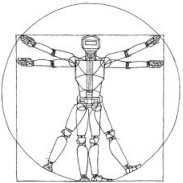Robotics: Science and Systems XV
Value Iteration Networks on Multiple Levels of Abstraction
Daniel Schleich, Tobias Klamt, Sven BehnkeAbstract:
Learning-based methods are promising to plan robot motion without performing extensive search, which is needed by many non-learning approaches. Recently, Value Iteration Networks (VINs) received much interest since---in contrast to standard CNN-based architectures---they learn goal-directed behaviors which generalize well to unseen domains. However, VINs are restricted to small and low-dimensional domains, limiting their applicability to real-world planning problems. To address this issue, we propose to extend VINs to representations with multiple levels of abstraction. While the vicinity of the robot is represented in sufficient detail, the representation gets spatially coarser with increasing distance from the robot. The information loss caused by the decreasing resolution is compensated by increasing the number of features representing a cell. We show that our approach is capable of solving significantly larger 2D grid world planning tasks than the original VIN implementation. In contrast to a multiresolution coarse-to-fine VIN implementation which does not employ additional descriptive features, our approach is capable of solving challenging environments, which demonstrates that the proposed method learns to encode useful information in the additional features. As an application for solving real-world planning tasks, we successfully employ our method to plan omnidirectional driving for a search-and-rescue robot in cluttered terrain.
Bibtex:
@INPROCEEDINGS{Behnke-RSS-19,
AUTHOR = {Daniel Schleich AND Tobias Klamt AND Sven Behnke},
TITLE = {Value Iteration Networks on Multiple Levels of Abstraction},
BOOKTITLE = {Proceedings of Robotics: Science and Systems},
YEAR = {2019},
ADDRESS = {FreiburgimBreisgau, Germany},
MONTH = {June},
DOI = {10.15607/RSS.2019.XV.014}
}
